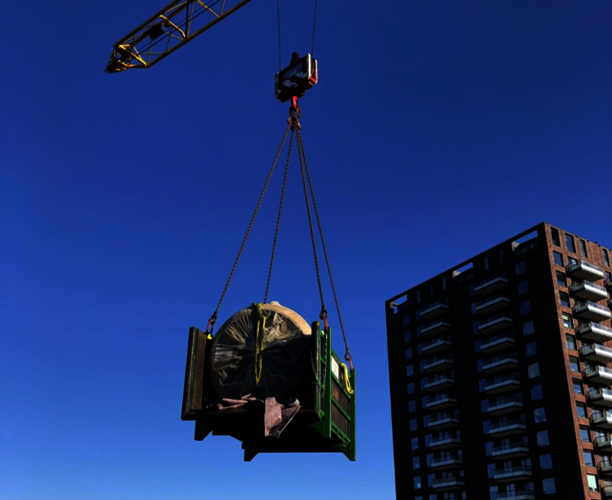Free from natural gas thanks to residual heat from a data centre
Since the handover in 2013, the Amsterdam Science Park II student building has been supplied with residual heat from Nikhef, a research institute and data centre. Cooling their equipment releases an enormous amount of heat. This heat is stored in a thermal energy storage system (WKO) and can be used to heat the nearby DUWO student houses. The return cold water is then reused by Nikhef to cool its equipment.
However, so much heat was released that in 2020 an existing student building, Science Park I, was connected to the thermal energy storage system. This building, with 721 student residences, does not use any natural gas. They receive their heat from Nikhef, providing cooling in return. It’s a win-win situation, as a suitable balance between heat and cold is important for a thermal energy storage system. Together, we have significantly reduced CO2 emissions. Residents also benefit enormously from the very low energy costs.
Open Heat Network Delft
In the Delft districts of Voorhof and Buitenhof, we are developing the Open Warmtenet Delft as part of a consortium. This is a collaboration between housing corporations (Woonbron, Vidomes, DUWO, Stedelink), InWarmte as the first heat supplier, heat network company NetVerder, Geothermie Delft (the source), and the municipality of Delft.
We are building a so-called ‘open’ heat network, in which the network management and supply of heat are split. In the future, various heat suppliers will be able to use the network. This will enable us to achieve a reliable, inclusive, and sustainable heat supply, offering residents fossil fuel-free and affordable heating and cooking.
DUWO intends to connect all student buildings in the Voorhof and Buitenhof districts, as well as those on the TU campus and in part of Hof van Delft, to this new heat network. This involves approximately 2,500 of our student residences at the following locations:
- E. du Perronlaan 2-864
- I. da Costalaan 337-431
- L. Couperuslaan 23-117
- N. Beetslaan 23-117
- Roland Holstlaan 1-749
- Röntgenweg 1-1041
- Leeghwaterstraat 50-350
- Korvezeestraat 1-640
- Balthasar van der Polweg 562-1180
- Rotterdamseweg 139
- Mijnbouwplein 11
- Michiel de Ruyterweg 2-488
This will take some time to complete, as all buildings will first need to be made more sustainable to ensure they are suitable for the uniform lower temperature provided by the heat network. Our ambition is to be operational by 2026. More information can be found at
